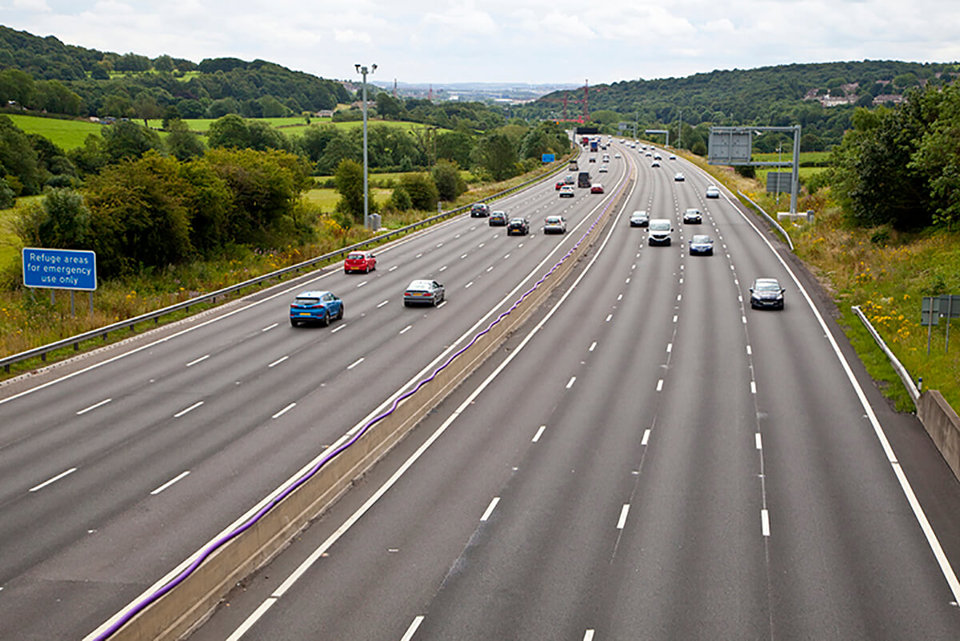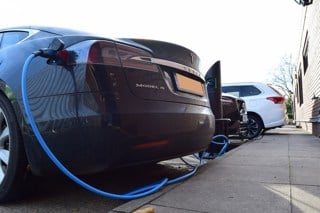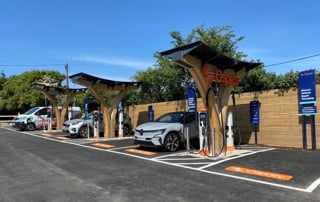A group of MPs has called for the ban on sales of new ‘conventional’ petrol and diesel cars and vans, including hybrids, to be brought forward to 2035, at the latest.
In a report launched today, the Science and Technology Committee also criticises the reductions in the 'plug-in grant' in October 2018, and asks why fuel duty has been frozen while bus and train fares have been allowed to rise.
The report - Clean Growth: Technologies for meeting the UK’s emissions reduction targets - highlights the lack of Government policies in place to deliver the net zero target by 2050 and recommends 10 steps the Government should take to meet this legally binding target.
Among the measures it is recommending is that the Government’s ban on the sale of new ‘conventional’ diesel and petrol cars and vans is brought forward from 2040 to 2035, at the latest.
In the near-term, it says that the Government must also reconsider the fiscal incentives for consumers to purchase both new and used vehicle models with lower emissions.
The Government should also work with public services and owners of public land, such as schools and hospitals, to accelerate the deployment of electric vehicle charge points, and introduce measures to ensure that charge points are interoperable, compatible with a smart energy system, reliable, and provide real-time information on their current functionality.
But, perhaps most controversially it notes that, although ultra-low emissions vehicles generate very little emissions during use their manufacture generates substantial emissions, in the long-term “widespread personal vehicle ownership does not appear to be compatible with significant decarbonisation”.
It adds: “The Government should not aim to achieve emissions reductions simply by replacing existing vehicles with lower-emissions versions.”
Norman Lamb MP, chair of the science and technology committee, said: “Throughout our inquiry, it was worrying to hear that although the Government may be ambitious when it comes to reducing carbon emissions, it is not putting the policies in place which are needed to achieve those targets.
“We need to see the Government put its words into actions.”
The Government's own projections suggest that the UK is not currently on track to meet its current emission targets, let alone net zero by 2050.
“The rate of deployment of several key low-carbon technologies is significantly lower than what is required to meet the Government's ambitions, and various stakeholders expressed concern at the current and projected rate of progress of the UK's decarbonisation,” continued Lamb.
“We heard of cut backs in various programmes and slow progress, which are incompatible with the UK's two upcoming, legally binding, carbon budgets—this is unacceptable.”
He says that if Governments across the world fail to act, it will have dire consequences for the environment and generations to come.
Other recommendations the committee makes, include: a Government strategy for decarbonising heat; an incentive scheme for energy efficiency home improvements; support for onshore wind and solar power; clear action on carbon capture, usage and storage; and support for local authorities.
RAC head of policy Nicholas Lyes said: “RAC research suggests drivers’ dependence on the car is actually growing as they continue to see their own vehicles as the most reliable, comfortable and practical form of travel, something many simply cannot get with public transport at the moment.
“For more than a decade now drivers have said they would be willing to use their car less if public transport was better, but it remains the case that provision is poor in so many parts of the country.
“The priority for Government must be to support the transition to zero-emission vehicles by prioritising both charging infrastructure and promoting take-up at the point of sale – and this can be done to a certain extent by reversing the decision to cut the plug-in car grant or look at options such as lower VAT on the purchase price of a zero emission vehicle.”
Commenting on the report, Dr Nina Skorupska, chief executive at the Renewable Energy Association (REA), added: “The report accurately highlights the need to focus on the hard to decarbonise areas of heat and transport.
“As well as this, emphases on ramping up the switch to electric vehicles through incentives and a review of the Smart Export Guarantee after a year of operation are policies that will benefit not only the industry but the wider public.
“We also recommend the introduction of E10 to further tackle the concerning levels of vehicle emissions highlighted in the report.
“We urge the new Government to follow through on their promise to continue Net Zero preparation and adhere to the advice of the report as a minimum.”
To read the report, click here.























Mr Sheene - 22/08/2019 13:04
“RAC research suggests drivers’ dependence on the car is actually growing as they continue to see their own vehicles as the most reliable, comfortable and practical form of travel, something many simply cannot get with public transport at the moment. This is totally true. I can't get a train to anywhere from home, buses don't run until after I need to leave home for work, take an age and only run hourly. I am stuck with private transport. MOTORBIKES are the answer to reducing single occupancy cars and increasing traffic flow and capacity. Make it easier to ride one that can be used safely at motorway speeds and car users will migrate to cheaper, less congested commuting. Their popularity in Asian countries isn't for nothing.